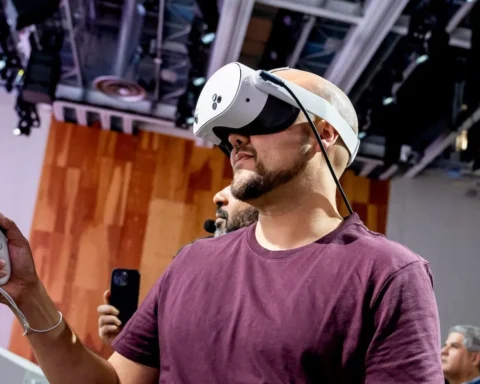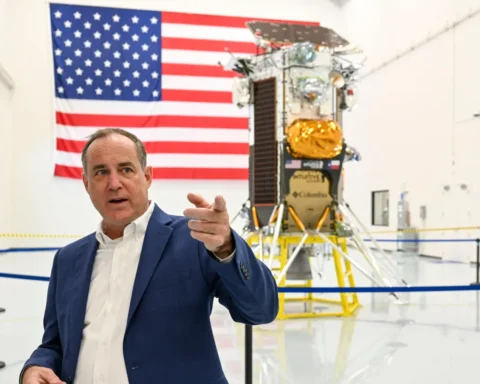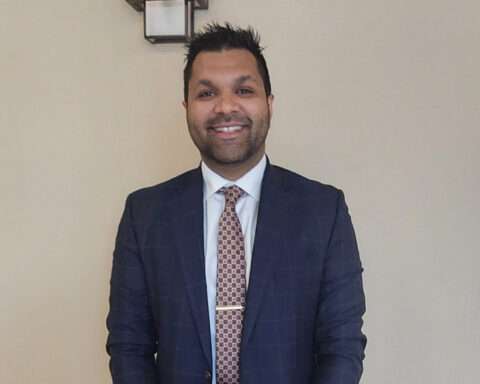[ad_1]
Mayor Brandon Johnson’s decision to cancel the ShotSpotter contract but extend it until Sept. 22 says a lot about his political leadership — or lack of it.
If Johnson was so determined to honor his campaign promise to get rid of the controversial gunshot detection system, why did he wait until the last minute to timidly announce the decision and fail to prepare the Chicago Police Department for life after ShotSpotter?
And if he was so determined to shore up his Far Left political base by delivering for the activists who view ShotSpotter as an overreaching surveillance tool, why keep it around through the summer, when violent crime typically spikes and Chicago plays host to the Democratic National Convention?
“The policy decision is to make sure that there’s time for this orderly transition,” senior mayoral adviser Jason Lee told the Sun-Times. “This was a period of time that was requested by the Police Department in which they believe they could do that transition effectively and seamlessly. The mayor agreed that would be a prudent decision.
“ShotSpotter is integrated into certain police activities,” Lee said. “The Chicago Police Department needs time to get the officers ready for transition. … You don’t want to have an abrupt discontinuity of a platform that’s being used widely across 12 districts. So that was the right policy decision. One, to move away from ShotSpotter. But also to do it in a way that doesn’t create upheavals or disruptions in operations.”
The $49 million contract with the company that rebranded itself as SoundThinking after Johnson’s election was three days away from expiring when Johnson issued a short statement Tuesday announcing his decision to terminate it.
The contract has already been extended twice and there’s no option for another extension.
That means that Johnson must now negotiate new terms for keeping through Sept. 22 the technology now integrated into “Strategic Decision Support Centers” at 12 of Chicago’s 22 police districts.
Johnson’s 2024 city budget earmarked $8.9 million for “software maintenance and licensing” at the city’s Office of Public Safety Administration. That’s the line item that has, in the past, been used to pay ShotSpotter.
Company CEO Ralph Clark made an apparent reference to that line item in a recent earnings call in which he expressed to investors his optimism about a Chicago renewal, according to South Side Weekly.
Now that allotment is likely to be used as the ceiling for a final payment.
Political activists who helped Johnson rise from single-digit obscurity into the mayor’s office were doing a victory dance on Tuesday.
They argued that the gunshot detection technology that has been embedded in Chicago’s crime-fighting strategy for more than a decade is too costly, ineffective and contributes to overpolicing in Black and Brown communities where the majority of gun violence occurs.
Getting rid of it, they claim, is an important step in rebuilding shattered trust between citizens and police. It’s also a prelude to dismantling the Chicago Police Department’s growing arsenal of surveillance tools that includes the largest network of surveillance cameras outside London as well as license plate readers, helicopters and facial recognition technology.
“I applaud the grassroots organizers, particularly the Black and Brown youth who continue championing true community safety and whose advocacy makes today’s sound public safety decision possible,” Ald. Carlos Ramirez-Rosa (35th), the mayor’s former City Council floor leader, said in a statement.
But the Stop ShotSpotter Coalition urged the mayor to go further — by dumping another SoundThinking product that allows cops to search police data from across the country.
In October, Police Supt. Larry Snelling signed a deal allowing CPD to test the new product for six months at no additional charge.
“We urge the city to resist growing the mass-policing of Chicagoans,” the coalition said in a statement. “The Democratic National Convention will be used to justify the expansion of surveillance in Chicago. And the technology acquired for this event will become durable infrastructure used further to criminalize Black, Brown and poor people.”
Neither Clark nor other SoundThinking executives responded publicly to Johnson’s announcement.
The company’s stock took a nosedive on Tuesday, just as it did on the day after Johnson’s surprise victory over Paul Vallas in the April 2023 mayoral runoff.
The campaign to get rid of ShotSpotter gained political steam after the police shooting of 13-year-old Adam Toledo in March 2021.
Chicago Police Officer Eric Stillman was responding to a ShotSpotter alert when he chased Toledo into an alley in Little Village and shot the Toledo in the chest just a split-second after body-cam video showed the teenager dropping a handgun and raising both hands in the air.
In the political furor that followed Toledo’s death, two reports publicly questioned the efficacy and crime-fighting value of ShotSpotter’s alerts.
The MacArthur Justice Center at Northwestern University’s School of Law found that nearly 86% of police deployments to alerts of gunfire prompted no formal reports of any crime. And the city’s Office of Inspector General concluded that the technology rarely leads to investigatory stops or evidence of gun crimes and can change the way officers interact with neighborhoods they are assigned to patrol.
Just last week, outgoing Cook County State’s Attorney Kim Foxx piled on with a report that found ShotSpotter technology had a minimal impact on prosecuting gun violence cases.
Through it all, Snelling has remained ShotSpotter’s biggest cheerleader. But he has been careful not to second-guess the mayor who appointed him.
Lee flatly denied that Johnson was cutting the rug out from under his new police superintendent.
“We’ve had good progress on a reduction in shootings and violent crime,” Lee said. “We announced the ‘People’s Plan for Public Safety,’ which is already beginning to bear dividends. We’re seeing some declines in robberies in the first part of this year. We’re going to continue to build on that progress.
“The mayor is 100% committed to public safety, community safety. And he sees this choice as consistent with that,” Lee said.
Lee said Johnson’s decision was “based on the information that the mayor had and based on his understanding of the need to make sure that public safety dollars are invested to deliver the highest return on safety.”
Last month, Police Committee Chair Chris Taliaferro (29th) and a dozen of his City Council colleagues sent a letter to Snelling touting ShotSpotter as “critical to locating victims, giving first responders the opportunity to render swifter aid and locate evidence.”
Taliaferro predicted that Johnson’s decision to discontinue the technology would lengthen police response time.
“We have lost an opportunity to get aid to victims if there are shots or there is someone who has been shot,” he said. “We’re losing that opportunity to get them life-saving treatment as quickly as possible.
“Is this technology saving lives? Yes. Are our police officers able to respond to calls of shots fired a lot quicker than using the 911 system? Yes. I’m disappointed that we’re getting rid of technology that is actually working as it is designed to do,” Taliaferro said.
Former Los Angeles Police Chief Charlie Beck spent five months as Chicago’s interim police superintendent under former Mayor Lori Lightfoot, putting him in a unique position to comment on the gunshot detection system that Johnson has now decided to relinquish.
“CPD has integrated ShotSpotter into their strategic centers in the districts and I think they’re going to be losing a tool that has strong value,” Beck said. “Without something to replace it or without an alternate plan that will make up for its loss, I wouldn’t have done it. … It hurts their effectiveness.”
The mayor’s decision to phase out ShotSpotter comes less than a week after the Community Commission for Public Safety and Accountability hosted a public forum that devolved into a shouting match between supporters and critics of ShotSpotter.
Anthony Driver Jr., the commission president, said his “biggest concern” has never been “whether ShotSpotter stays or goes.” It’s whether or not Chicago neighborhoods were “prepared for this change.”
“If the mayor has made the decision to keep this until September, it gives us a chance to get prepared by engaging the community, by coming up with a plan,” Driver said.
[ad_2]









